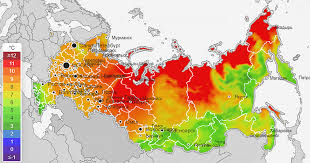Russia, a vast country with diverse landscapes and abundant natural resources, faces a range of environmental challenges that have significant implications for its people and the global environment.
Key Environmental Issues
1. Pollution:
- Air Pollution: Industrial emissions, particularly from power plants and factories, contribute to air pollution in many Russian cities. This can lead to respiratory problems, cardiovascular diseases, and other health issues.
- Water Pollution: Industrial and agricultural runoff, as well as improper waste disposal, pollute rivers and lakes, affecting water quality and biodiversity. This can lead to waterborne diseases, harm aquatic ecosystems, and reduce water availability for human consumption and agriculture.
- Soil Pollution: Industrial activities, mining, and improper agricultural practices can contaminate soil, leading to reduced agricultural productivity, health risks, and environmental degradation.
2. Deforestation:
- Illegal logging and deforestation for agricultural and industrial purposes have led to significant loss of forest cover. This has contributed to soil erosion, biodiversity loss, and climate change. Forests play a crucial role in regulating the climate, absorbing carbon dioxide, and providing habitat for countless species.
3. Climate Change:
- Russia is experiencing the effects of climate change, including rising temperatures, melting permafrost, and more frequent extreme weather events such as heatwaves, floods, and wildfires. These changes pose significant threats to infrastructure, ecosystems, and human settlements.
- The melting of permafrost, a layer of frozen soil, releases greenhouse gases, further exacerbating climate change. Additionally, it can destabilize infrastructure and release ancient pathogens.
4. Nuclear Legacy:
- The legacy of the Soviet Union’s nuclear program has left behind a significant environmental burden. Nuclear waste disposal, the decommissioning of nuclear power plants, and the remediation of contaminated sites are major challenges. Nuclear accidents, such as the Chernobyl disaster, have had long-lasting environmental and health consequences.
Environmental Policy and Regulations
The Russian government has implemented various environmental regulations and policies to address these challenges. However, enforcement remains a significant issue, and corruption often hinders effective implementation.
- Environmental Legislation: Russia has a comprehensive system of environmental laws and regulations, but their enforcement is often weak.
- Environmental Monitoring: The government has established a network of monitoring stations to track environmental conditions. However, these stations may not be adequately funded or staffed, leading to gaps in data collection and analysis.
- International Cooperation: Russia participates in international environmental agreements and collaborates with other countries to address global environmental challenges. However, its commitment to international cooperation has been inconsistent, and it has often resisted international efforts to address climate change.
The Role of Civil Society
Civil society organizations play a crucial role in raising awareness about environmental issues and advocating for stronger environmental protection. However, these organizations face challenges such as government restrictions, limited funding, and harassment.
To address its environmental challenges, Russia needs to strengthen its environmental regulations, invest in environmental protection, and promote sustainable development. By working with international partners and civil society, Russia can contribute to a more sustainable future.

Leave a Reply